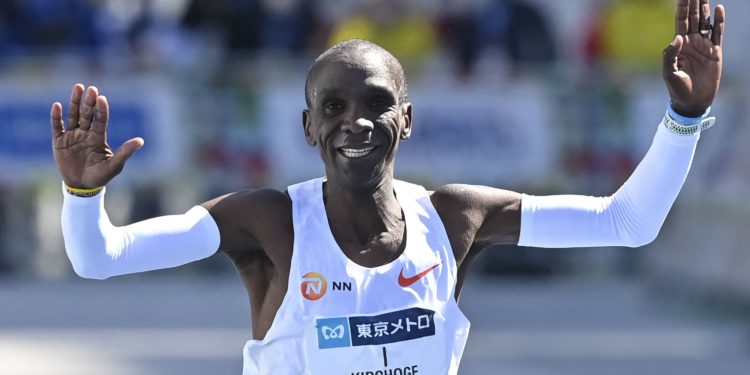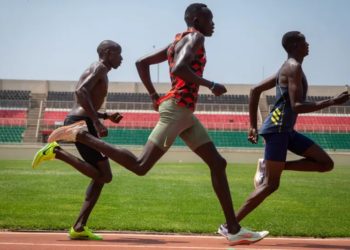Two-time Olympic marathon champion Eliud Kipchoge has urged sports leaders to draw lessons from past experiences to shape future strategies.
This comes after a difficult exit from the 2024 Paris Olympics, where Kipchoge, after suffering a physical setback, was forced to withdraw 12 km from the finish line, recording his first Did Not Finish (DNF) in his illustrious career.
Reflecting on his Olympic journey, Kipchoge emphasized the importance of peace and education in fostering success, saying, “Peace and education play a great role in our generation. The combination of the two is magical.”
Kipchoge, who led Team Kenya alongside champions Alex Mutiso and Benson Kipruto, encouraged sports federations to support athletes not only during their peak but also beyond their sporting careers. He noted the need to treat athletes with the care and patience of a farmer cultivating crops: “Train our athletes, invest in them, and eventually wait for the results. What athletes do behind the scenes is commendable. They are the people who build the game by their hands.”
The legendary marathoner expressed concern over how athletes are often sidelined during major events, drawing a comparison to weddings, where the focus shifts from the couple to the celebration itself. “We celebrate the events and not our athletes, which should not be the case,” Kipchoge said.
He urged sports federations to go beyond rewarding athletes with trophies and emphasized investing in their mental and emotional well-being. “Athletes should be taught literacy and handling pressure in emotional and physical states. Do not just award them trophies. Work on their minds as well,” Kipchoge advised, suggesting that practical skills such as social media management could sustain athletes long after they retire from competition.
The marathon star ended with a challenge to sponsors, urging them to prioritize athlete welfare over event funding: “To our sponsors, I challenge you to include humanity in your budget. Finance these athletes for the good work they are doing.”


















